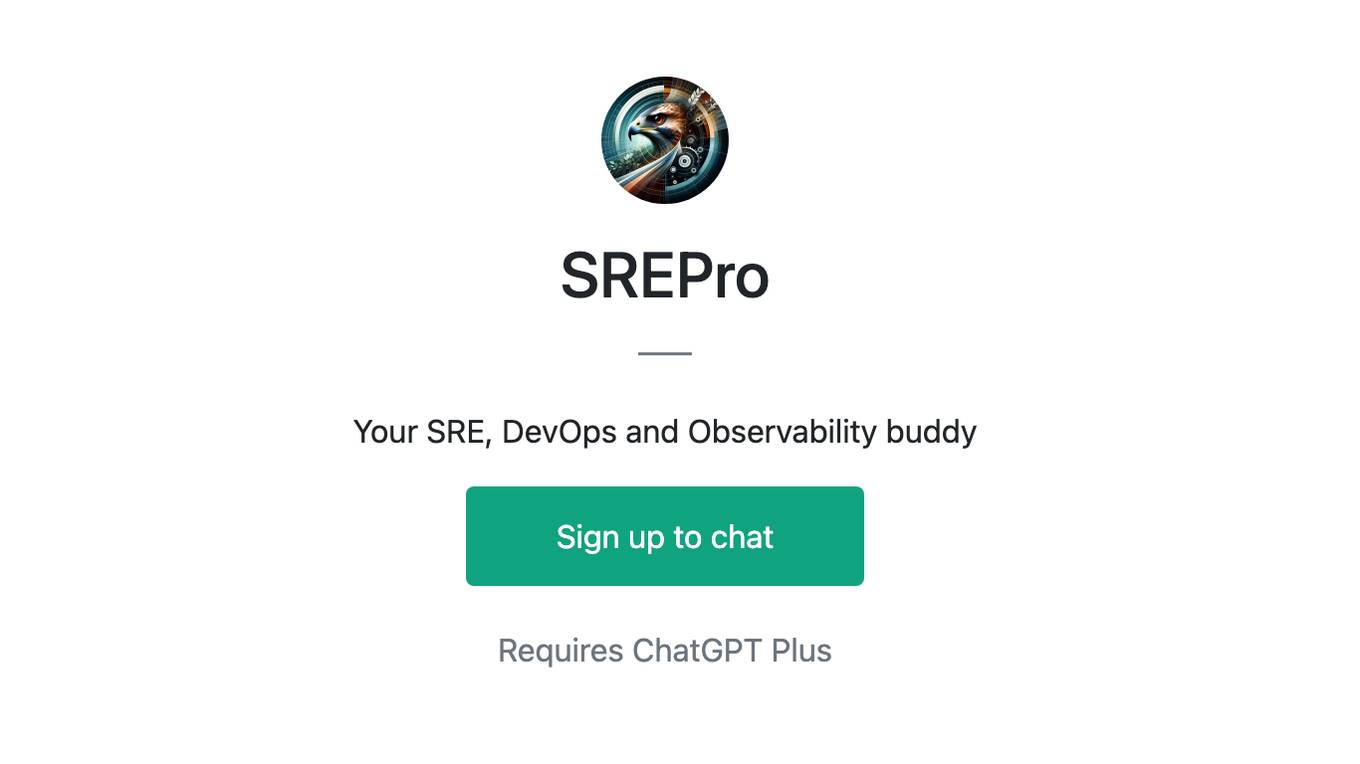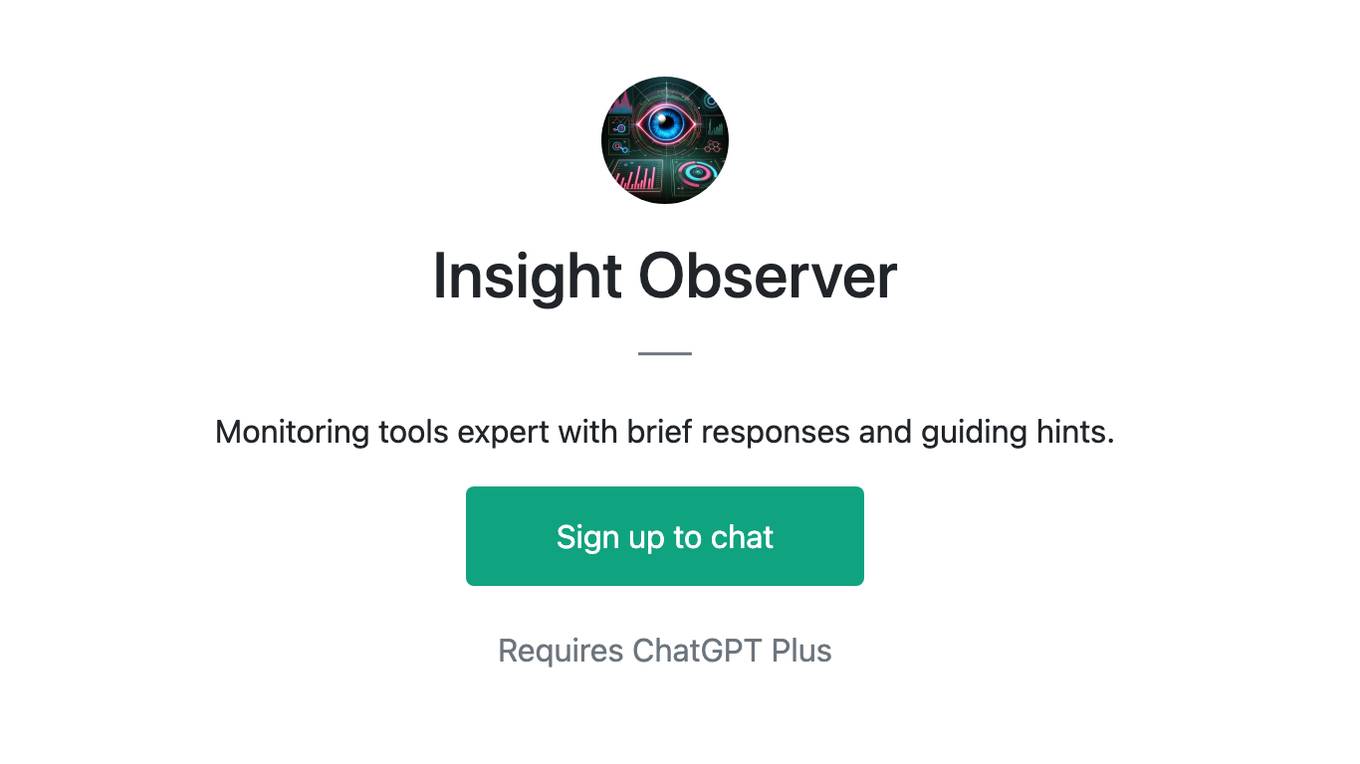Best AI tools for< Observability Engineer >
Infographic
20 - AI tool Sites
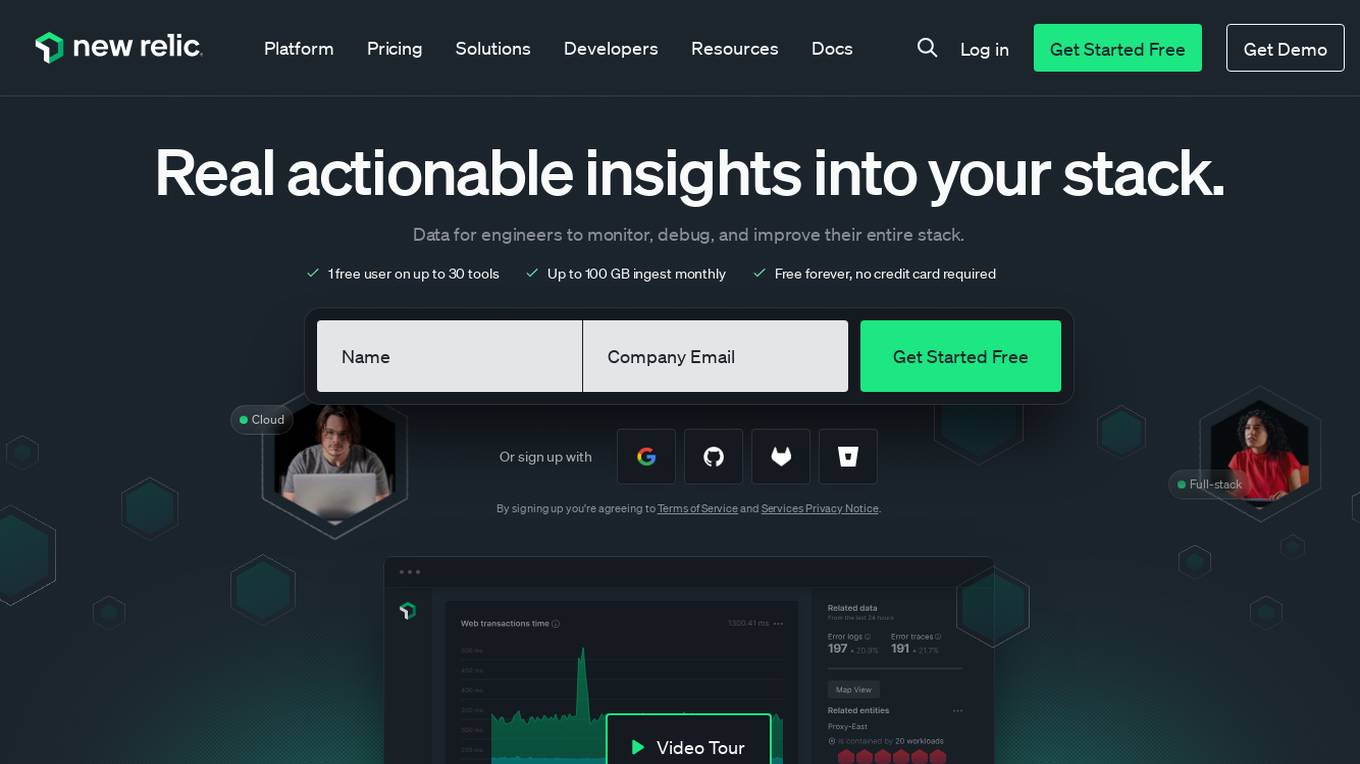
New Relic
New Relic is an AI monitoring platform that offers an all-in-one observability solution for monitoring, debugging, and improving the entire technology stack. With over 30 capabilities and 750+ integrations, New Relic provides the power of AI to help users gain insights and optimize performance across various aspects of their infrastructure, applications, and digital experiences.
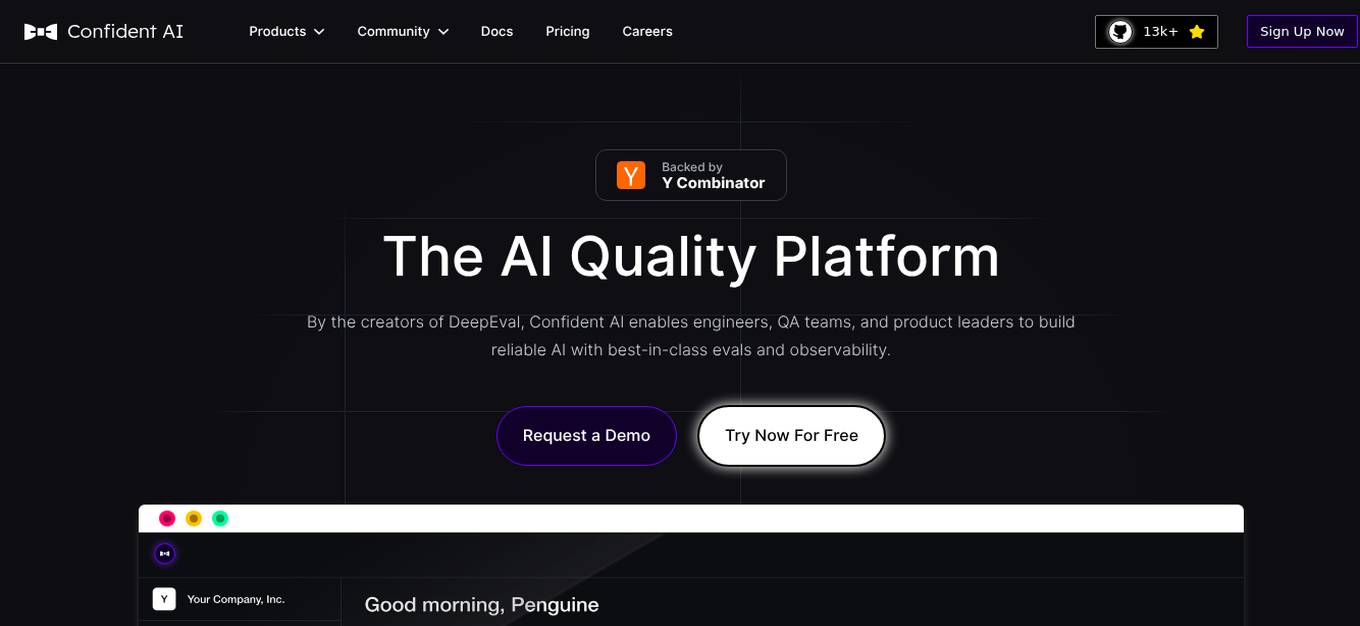
Confident AI
Confident AI is an AI evaluation and observability platform designed to help engineers, QA teams, and product leaders build reliable AI systems. It offers best-in-class evaluation metrics powered by DeepEval, real-time production alerts, and tools for tracing and monitoring AI performance. The platform aims to streamline dataset curation, metric alignment, and LLM testing automation, ultimately saving time, reducing costs, and ensuring continuous improvement of AI models.
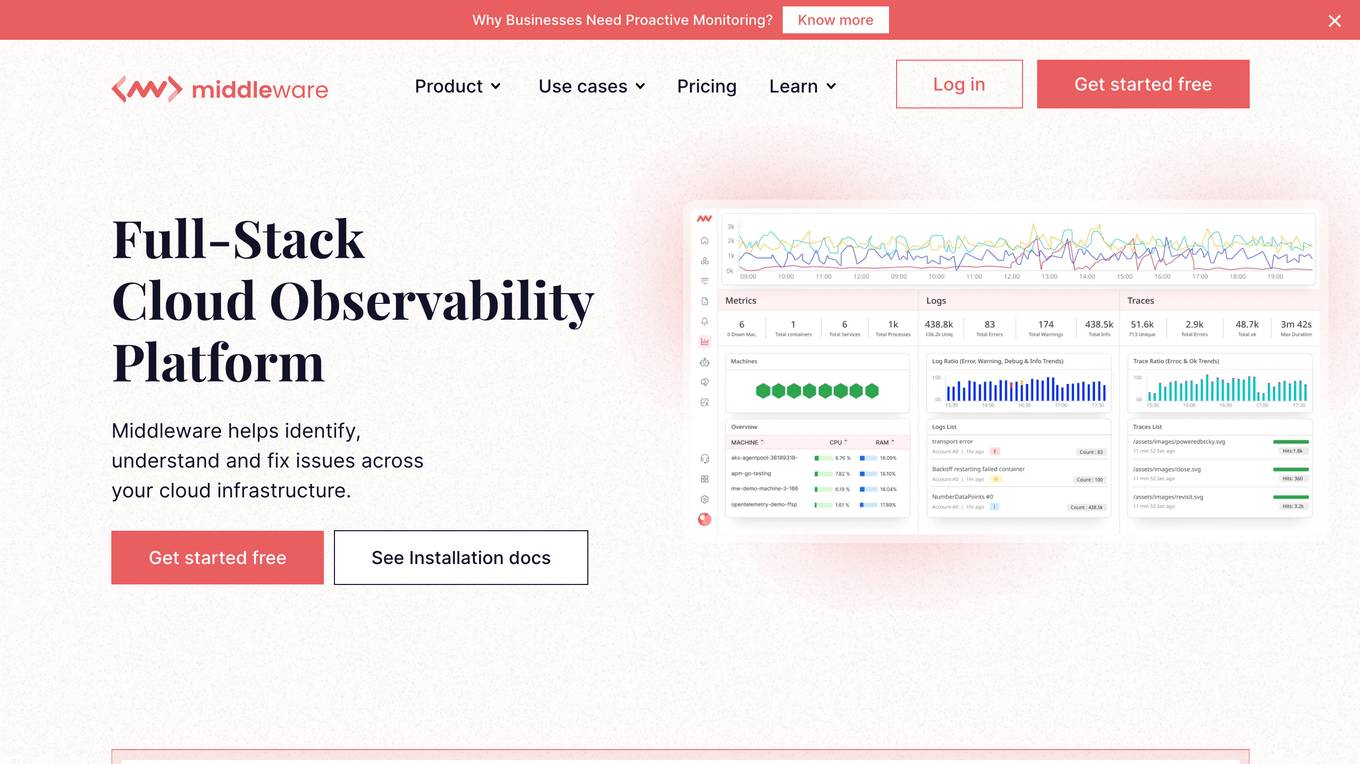
Cloud Observability Middleware
The website provides Full-Stack Cloud Observability services with a focus on Middleware. It offers comprehensive monitoring and analysis tools to help businesses optimize their cloud infrastructure performance. The platform enables users to gain insights into their middleware applications, identify bottlenecks, and improve overall system efficiency.

Evidently AI
Evidently AI is an open-source machine learning (ML) monitoring and observability platform that helps data scientists and ML engineers evaluate, test, and monitor ML models from validation to production. It provides a centralized hub for ML in production, including data quality monitoring, data drift monitoring, ML model performance monitoring, and NLP and LLM monitoring. Evidently AI's features include customizable reports, structured checks for data and models, and a Python library for ML monitoring. It is designed to be easy to use, with a simple setup process and a user-friendly interface. Evidently AI is used by over 2,500 data scientists and ML engineers worldwide, and it has been featured in publications such as Forbes, VentureBeat, and TechCrunch.
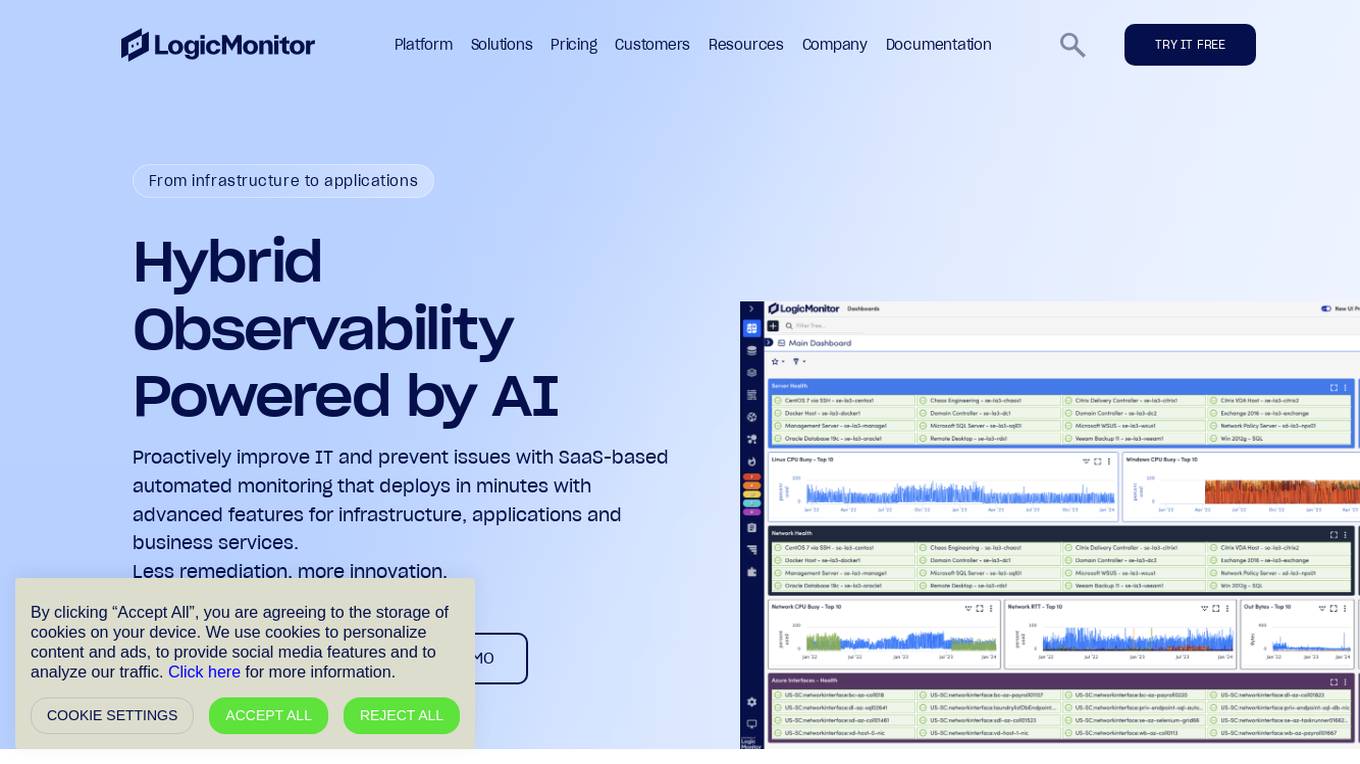
LogicMonitor
LogicMonitor is a cloud-based infrastructure monitoring platform that provides real-time insights and automation for comprehensive, seamless monitoring with agentless architecture. It offers a unified platform for monitoring infrastructure, applications, and business services, with advanced features for hybrid observability. LogicMonitor's AI-driven capabilities simplify complex IT ecosystems, accelerate incident response, and empower organizations to thrive in the digital landscape.
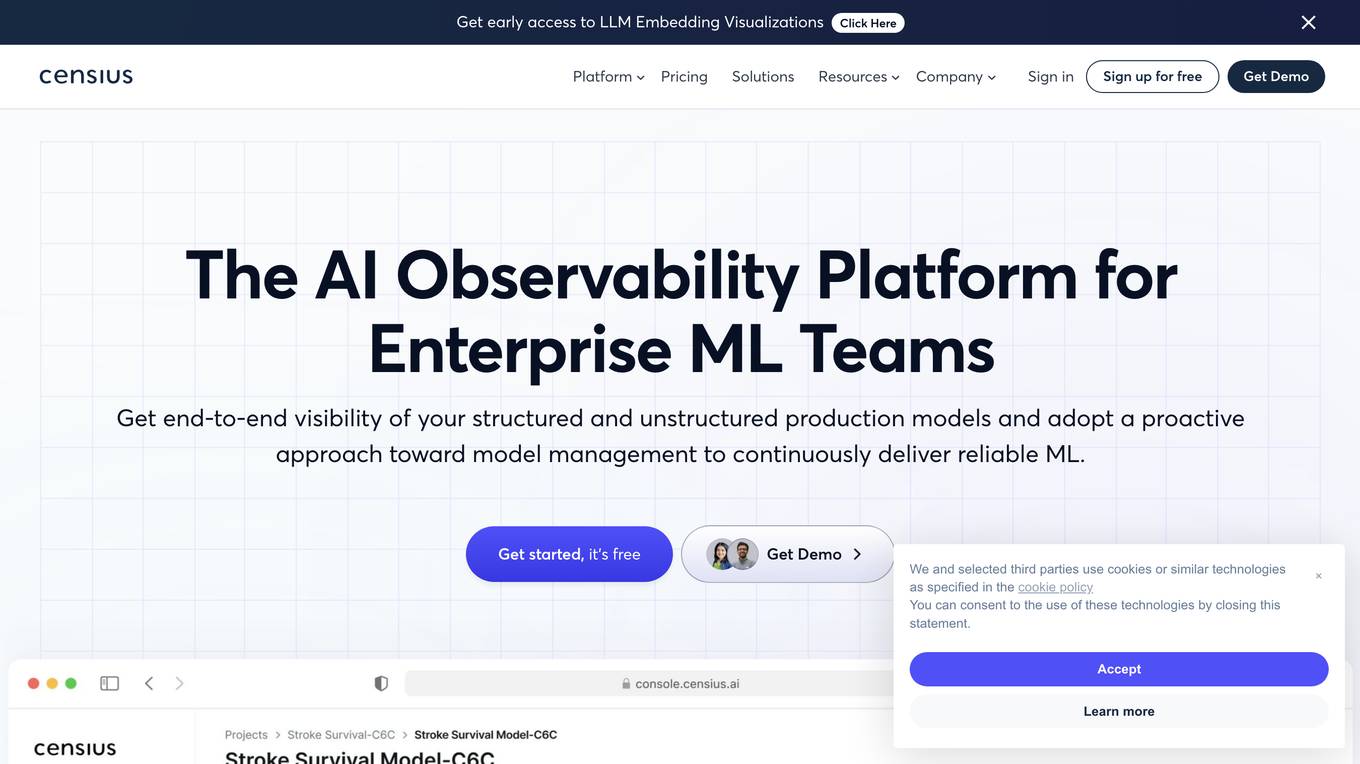
Censius
Censius is an AI Observability Platform for Enterprise ML Teams. It provides end-to-end visibility of structured and unstructured production models, enabling proactive model management and continuous delivery of reliable ML. Key features include model monitoring, explainability, and analytics.
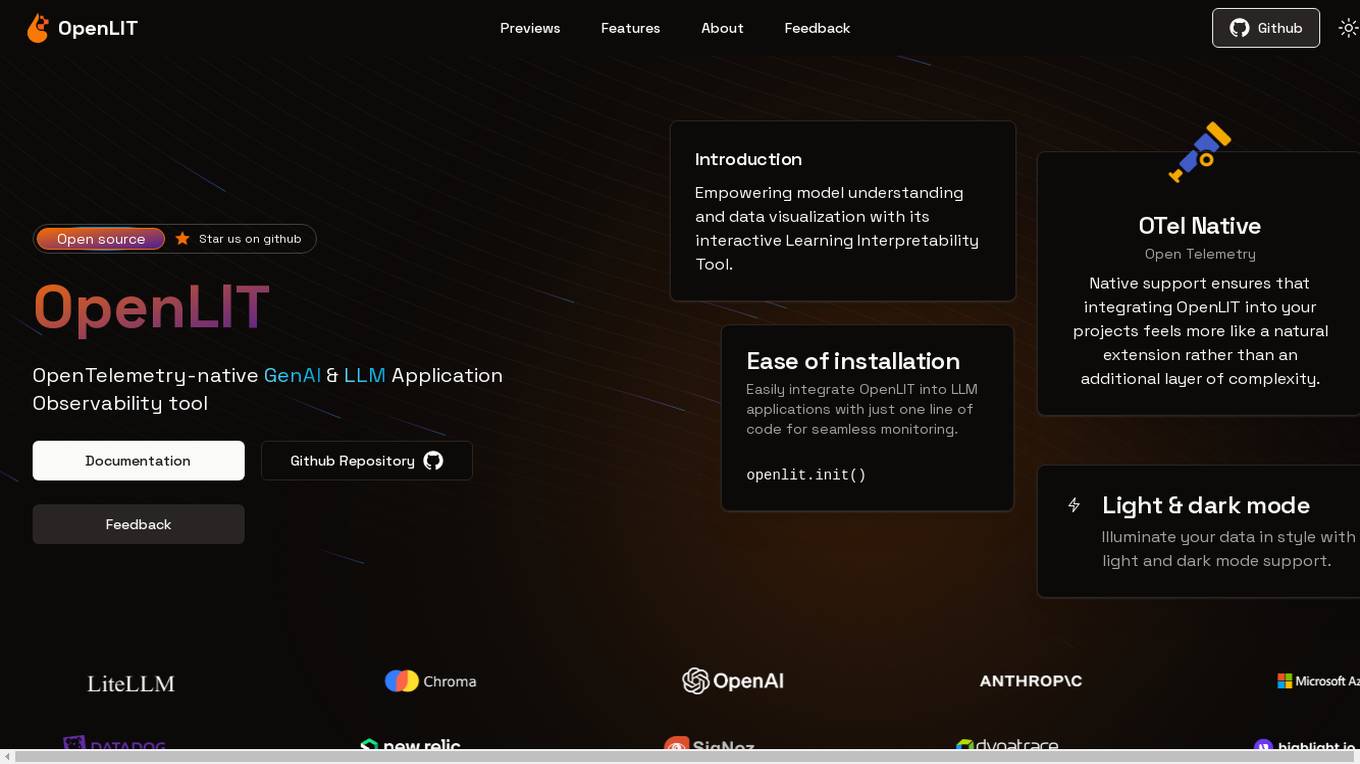
OpenLIT
OpenLIT is an AI application designed as an Observability tool for GenAI and LLM applications. It empowers model understanding and data visualization through an interactive Learning Interpretability Tool. With OpenTelemetry-native support, it seamlessly integrates into projects, offering features like fine-tuning performance, real-time data streaming, low latency processing, and visualizing data insights. The tool simplifies monitoring with easy installation and light/dark mode options, connecting to popular observability platforms for data export. Committed to OpenTelemetry community standards, OpenLIT provides valuable insights to enhance application performance and reliability.
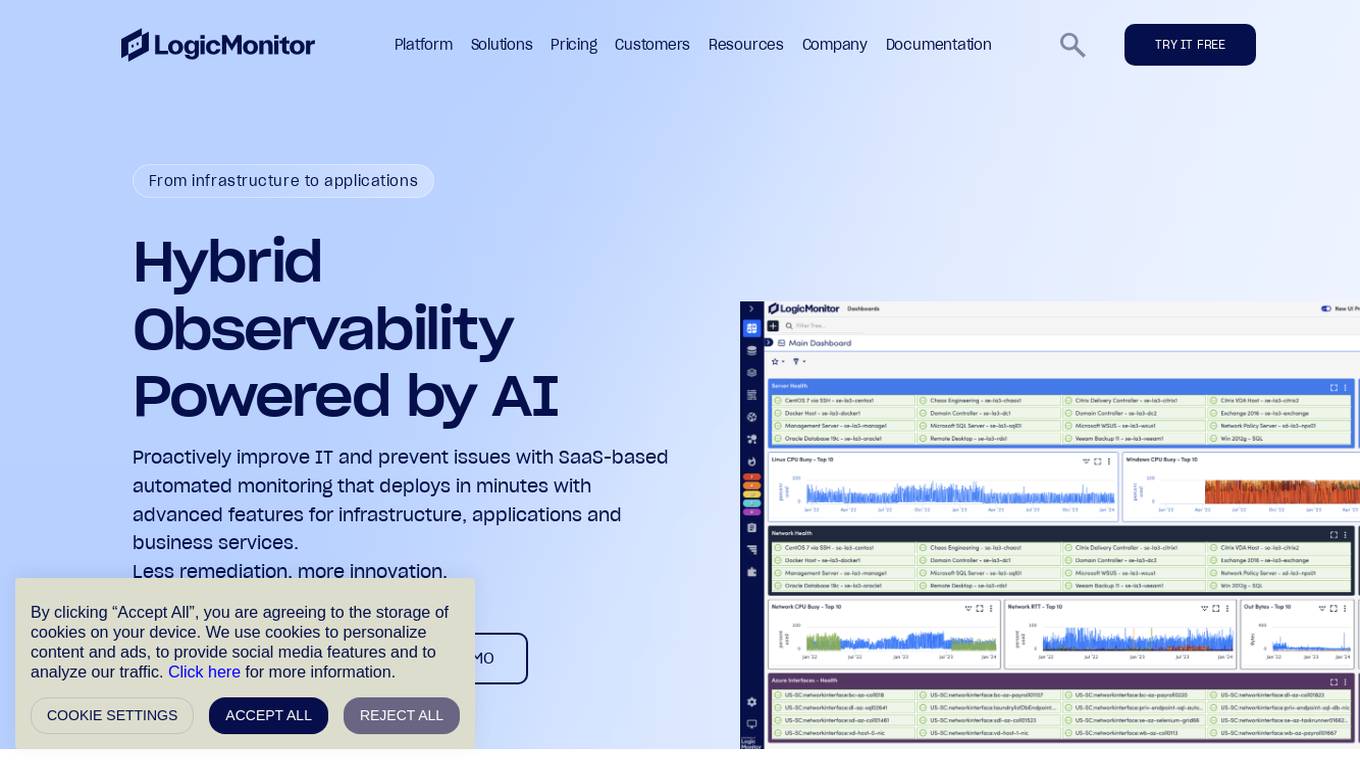
LogicMonitor
LogicMonitor is a cloud-based infrastructure monitoring platform that provides real-time insights and automation for comprehensive, seamless monitoring with agentless architecture. It offers a wide range of features including infrastructure monitoring, network monitoring, server monitoring, remote monitoring, virtual machine monitoring, SD-WAN monitoring, database monitoring, storage monitoring, configuration monitoring, cloud monitoring, container monitoring, AWS Monitoring, GCP Monitoring, Azure Monitoring, digital experience SaaS monitoring, website monitoring, APM, AIOPS, Dexda Integrations, security dashboards, and platform demo logs. LogicMonitor's AI-driven hybrid observability helps organizations simplify complex IT ecosystems, accelerate incident response, and thrive in the digital landscape.
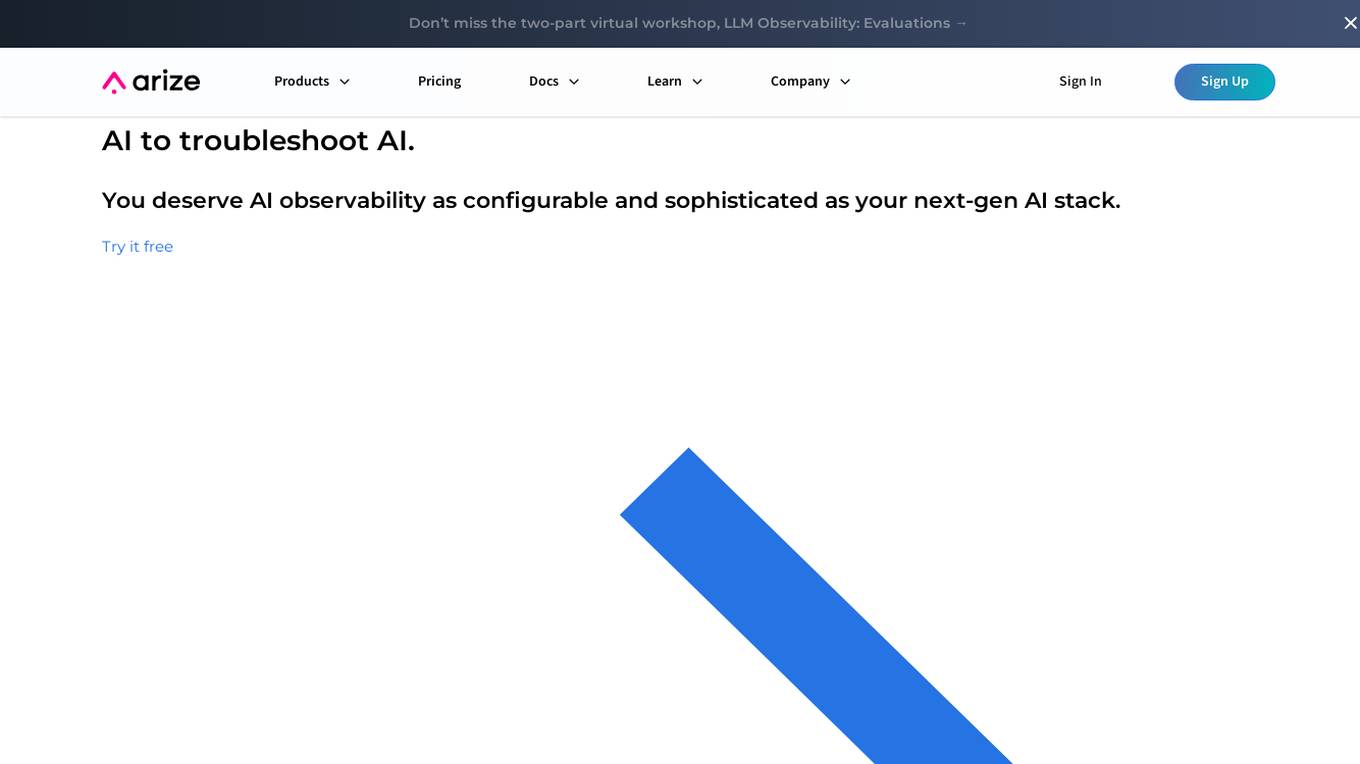
Arize AI
Arize AI is an AI observability tool designed to monitor and troubleshoot AI models in production. It provides configurable and sophisticated observability features to ensure the performance and reliability of next-gen AI stacks. With a focus on ML observability, Arize offers automated setup, a simple API, and a lightweight package for tracking model performance over time. The tool is trusted by top companies for its ability to surface insights, simplify issue root causing, and provide a dedicated customer success manager. Arize is battle-hardened for real-world scenarios, offering unparalleled performance, scalability, security, and compliance with industry standards like SOC 2 Type II and HIPAA.
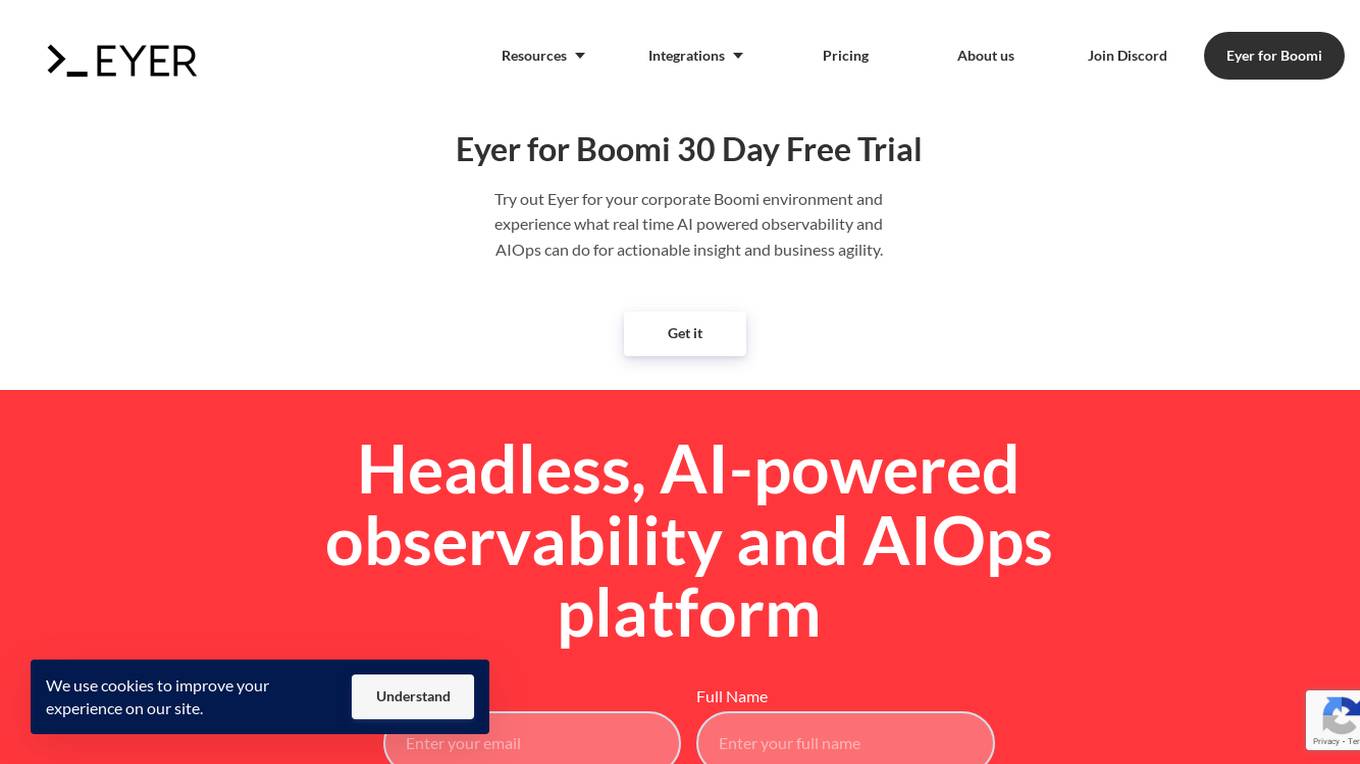
Eyer
Eyer is a headless AIOps platform that offers automated observability and actionable insights through AI-powered anomaly detection. It allows users to integrate with various systems using Open APIs and provides fast time-to-value by automating manual tasks and improving IT operation efficiency. Eyer supports integrations with tools like Boomi, Grafana, BizTalk, and Influx Telegraf, enabling users to monitor and manage their systems effectively.
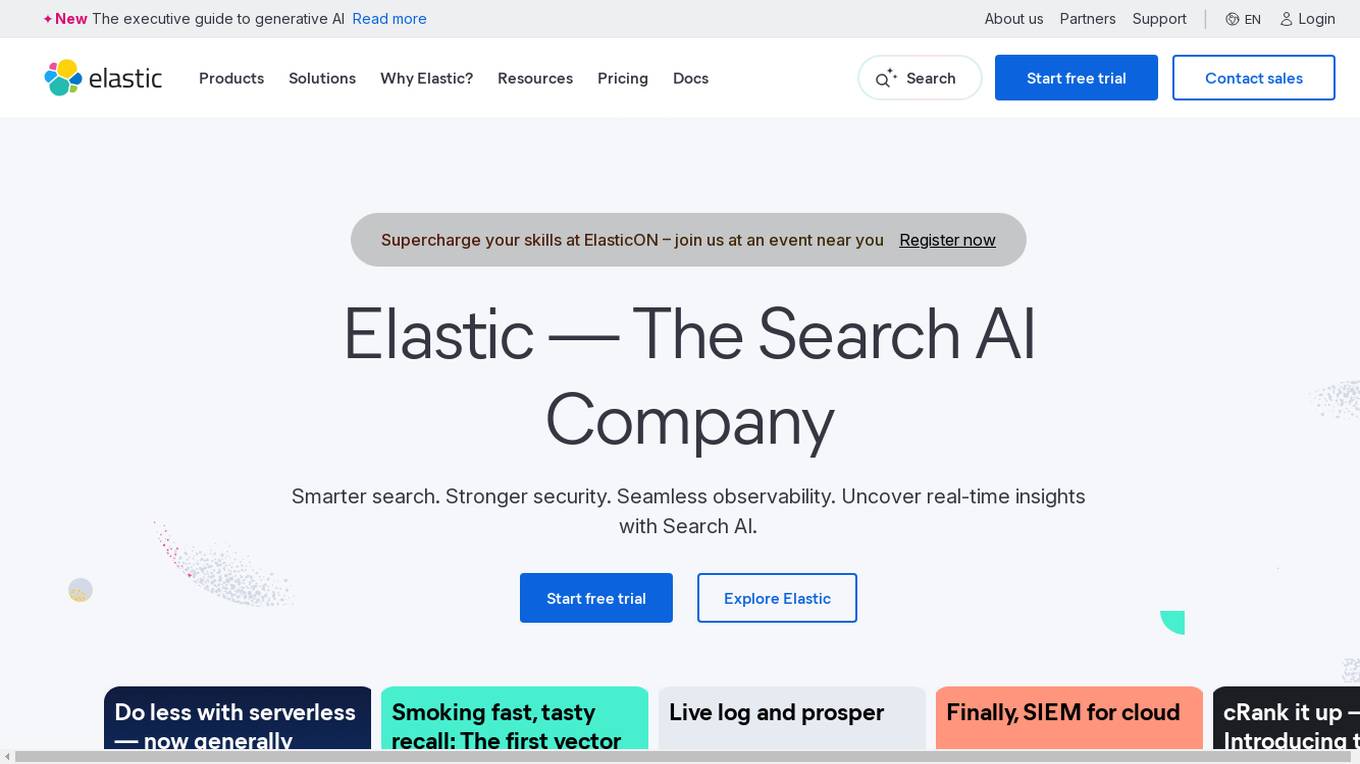
Elastic
Elastic is a Search AI Company that offers a platform for building tailored experiences, search and analytics, data ingestion, visualization, and generative AI solutions. The company provides services like Elastic Cloud for real-time insights, Elastic AI Assistant for retrieval and generation, and Search AI Lake for faster integration with LLMs. Elastic aims to help businesses scale with low-latency search AI and accelerate problem resolution with observability powered by advanced ML and analytics.

Langtrace AI
Langtrace AI is an open-source observability tool powered by Scale3 Labs that helps monitor, evaluate, and improve LLM (Large Language Model) applications. It collects and analyzes traces and metrics to provide insights into the ML pipeline, ensuring security through SOC 2 Type II certification. Langtrace supports popular LLMs, frameworks, and vector databases, offering end-to-end observability and the ability to build and deploy AI applications with confidence.
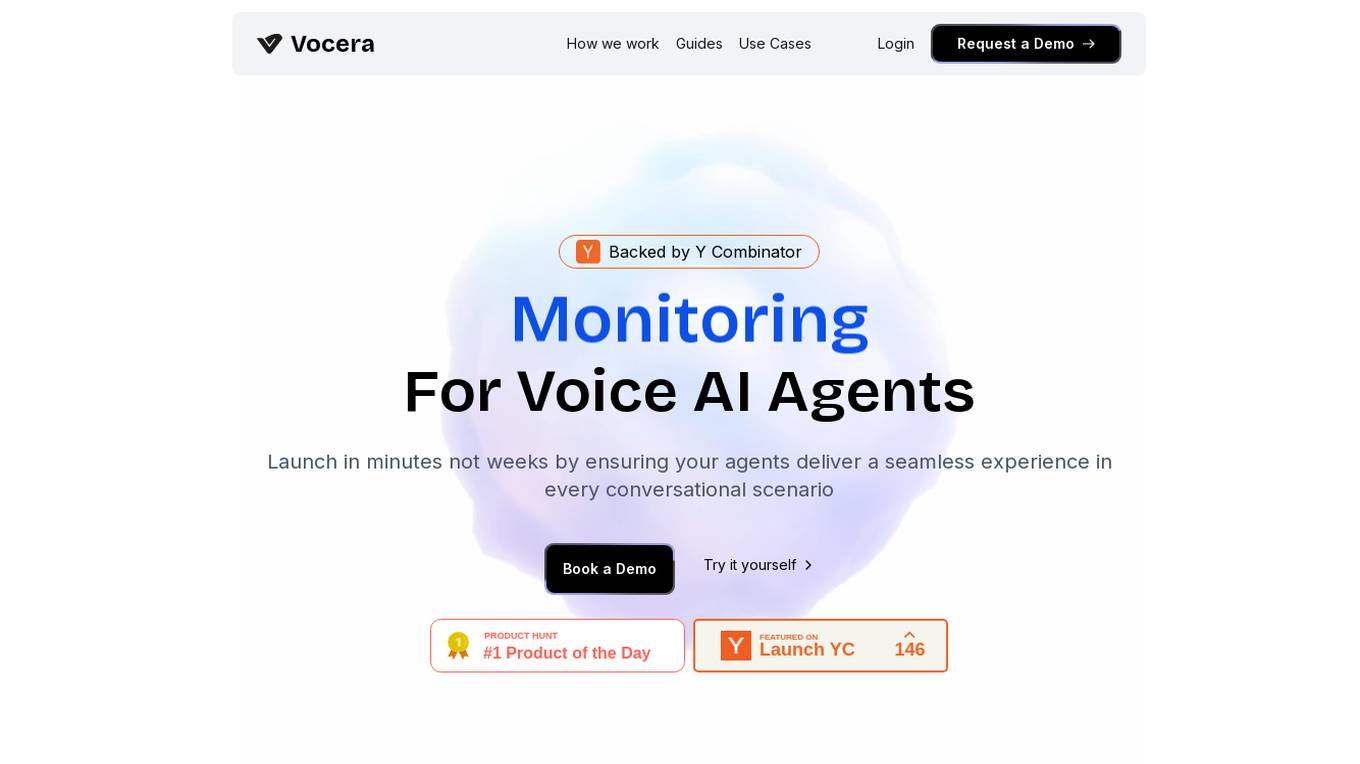
Vocera
Vocera is an AI voice agent testing tool that allows users to test and monitor voice AI agents efficiently. It enables users to launch voice agents in minutes, ensuring a seamless conversational experience. With features like testing against AI-generated datasets, simulating scenarios, and monitoring AI performance, Vocera helps in evaluating and improving voice agent interactions. The tool provides real-time insights, detailed logs, and trend analysis for optimal performance, along with instant notifications for errors and failures. Vocera is designed to work for everyone, offering an intuitive dashboard and data-driven decision-making for continuous improvement.
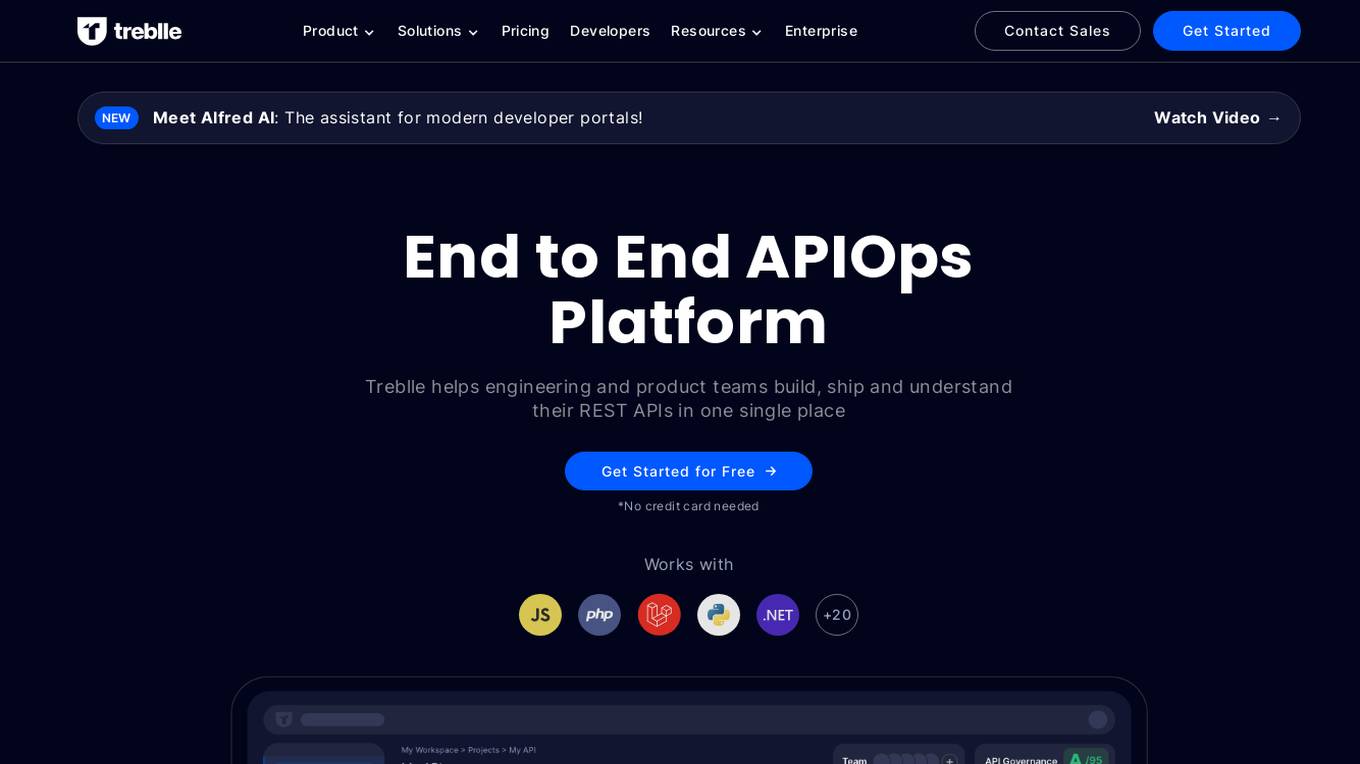
Treblle
Treblle is an End to End APIOps Platform that helps engineering and product teams build, ship, and understand their REST APIs in one single place. It offers features such as API Observability, API Documentation, API Governance, API Security, and API Analytics. With a focus on empowering API producers and consumers, Treblle provides actionable data in real-time, customizable dashboards, and automated API development. The platform aims to improve API release times, enhance developer experience, and ensure API quality and security.
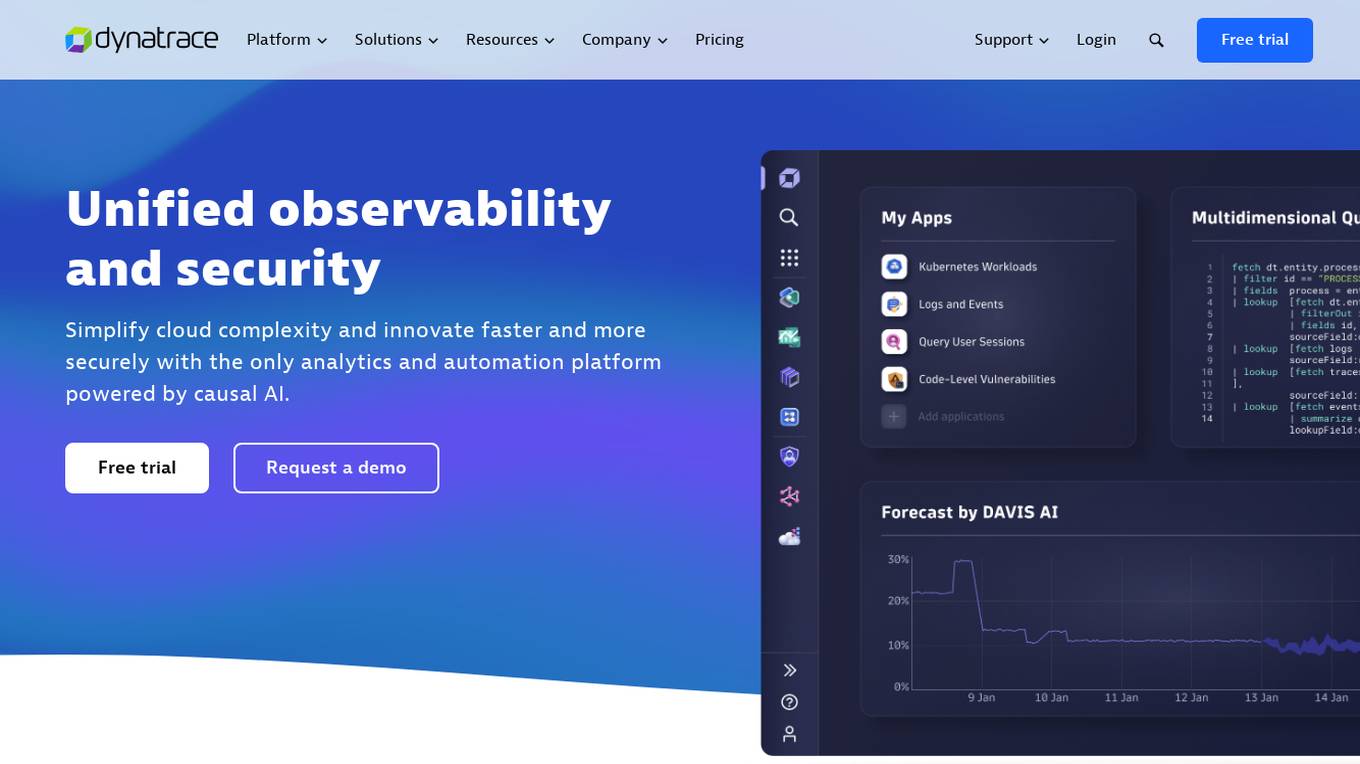
Dynatrace
Dynatrace is a modern cloud platform that offers unified observability and security solutions to simplify cloud complexity and drive innovation. Powered by causal AI, Dynatrace provides analytics and automation capabilities to help businesses monitor and secure their full stack, solve digital challenges, and make better business decisions in real-time. Trusted by thousands of global brands, Dynatrace empowers teams to deliver flawless digital experiences, drive intelligent cloud ecosystem automations, and solve any use-case with custom solutions.
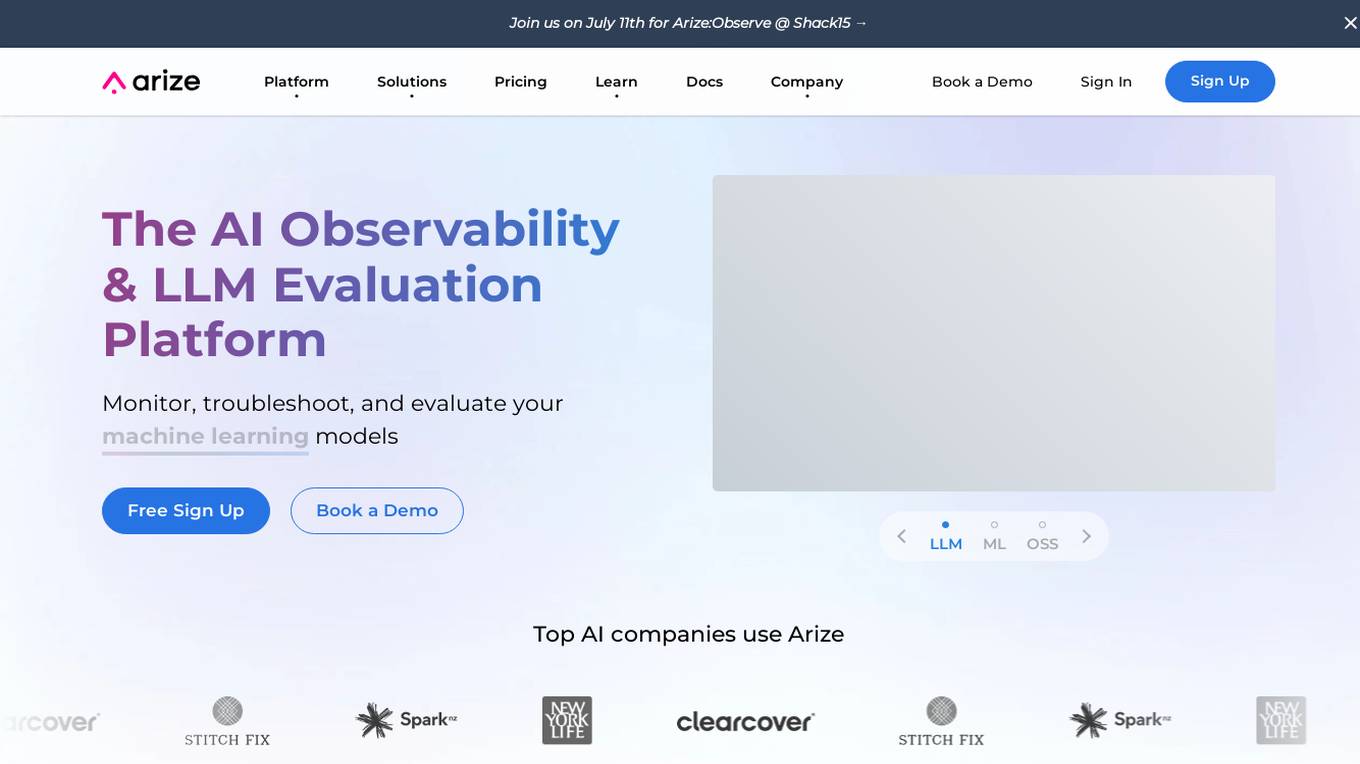
Arize AI
Arize AI is an AI Observability & LLM Evaluation Platform that helps you monitor, troubleshoot, and evaluate your machine learning models. With Arize, you can catch model issues, troubleshoot root causes, and continuously improve performance. Arize is used by top AI companies to surface, resolve, and improve their models.
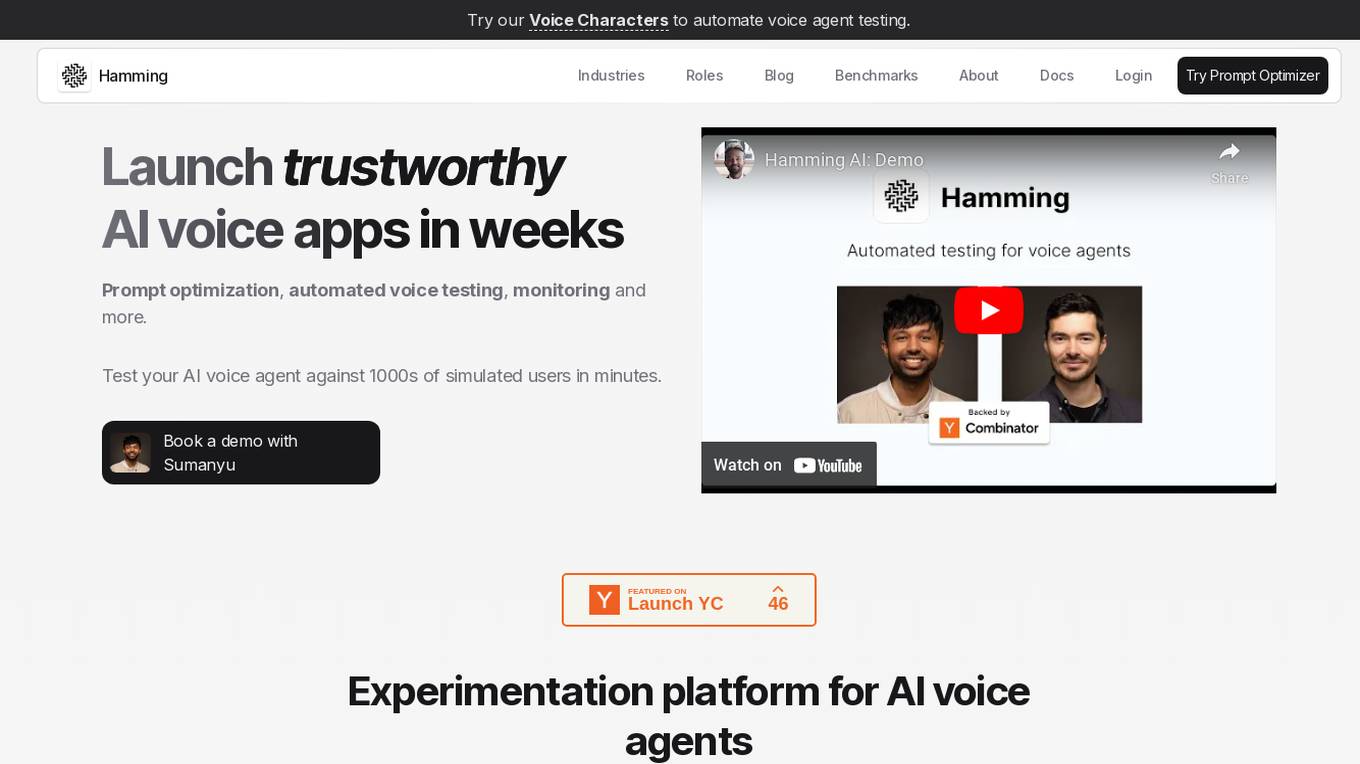
Hamming
Hamming is an AI tool designed to help automate voice agent testing and optimization. It offers features such as prompt optimization, automated voice testing, monitoring, and more. The platform allows users to test AI voice agents against simulated users, create optimized prompts, actively monitor AI app usage, and simulate customer calls to identify system gaps. Hamming is trusted by AI-forward enterprises and is built for inbound and outbound agents, including AI appointment scheduling, AI drive-through, AI customer support, AI phone follow-ups, AI personal assistant, and AI coaching and tutoring.
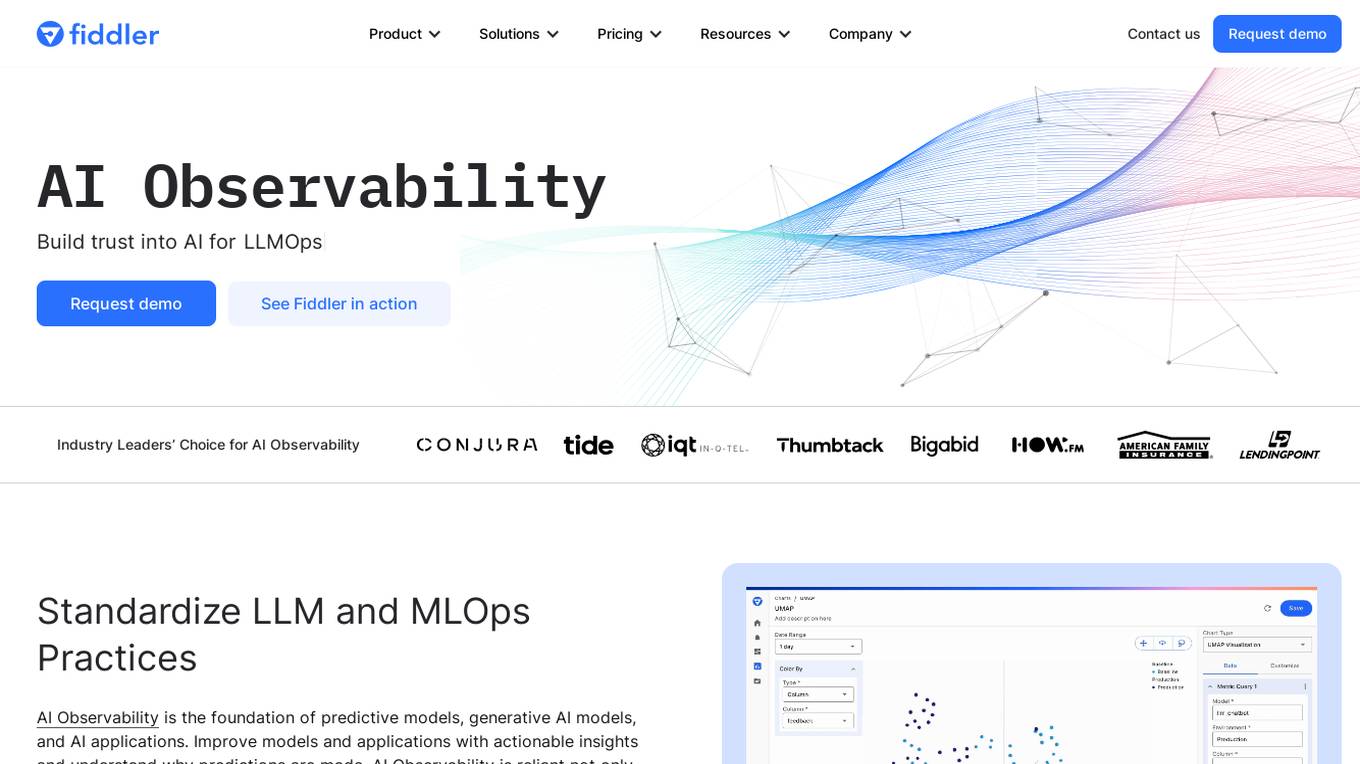
Fiddler AI
Fiddler AI is an AI Observability platform that provides tools for monitoring, explaining, and improving the performance of AI models. It offers a range of capabilities, including explainable AI, NLP and CV model monitoring, LLMOps, and security features. Fiddler AI helps businesses to build and deploy high-performing AI solutions at scale.
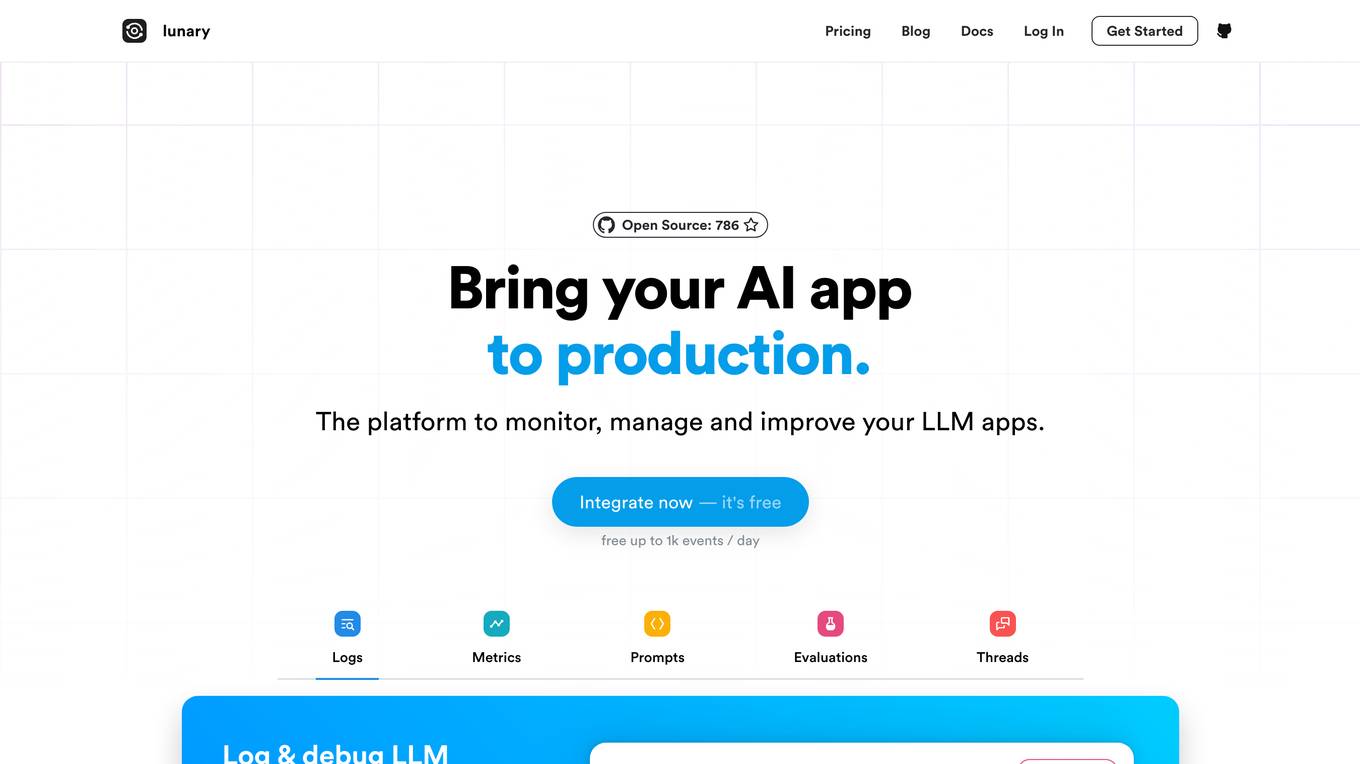
Lunary
Lunary is an AI developer platform designed to bring AI applications to production. It offers a comprehensive set of tools to manage, improve, and protect LLM apps. With features like Logs, Metrics, Prompts, Evaluations, and Threads, Lunary empowers users to monitor and optimize their AI agents effectively. The platform supports tasks such as tracing errors, labeling data for fine-tuning, optimizing costs, running benchmarks, and testing open-source models. Lunary also facilitates collaboration with non-technical teammates through features like A/B testing, versioning, and clean source-code management.
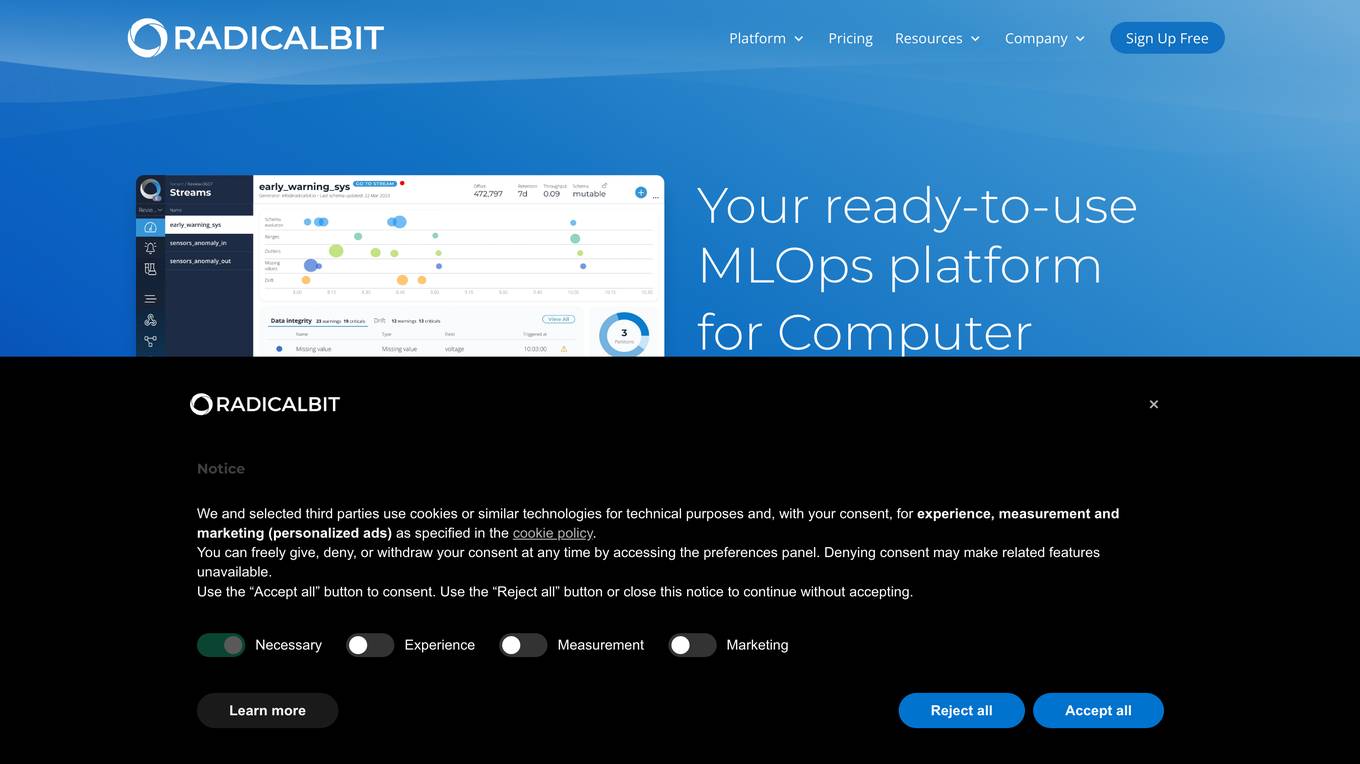
Radicalbit
Radicalbit is an MLOps and AI Observability platform that helps businesses deploy, serve, observe, and explain their AI models. It provides a range of features to help data teams maintain full control over the entire data lifecycle, including real-time data exploration, outlier and drift detection, and model monitoring in production. Radicalbit can be seamlessly integrated into any ML stack, whether SaaS or on-prem, and can be used to run AI applications in minutes.
7 - Open Source Tools
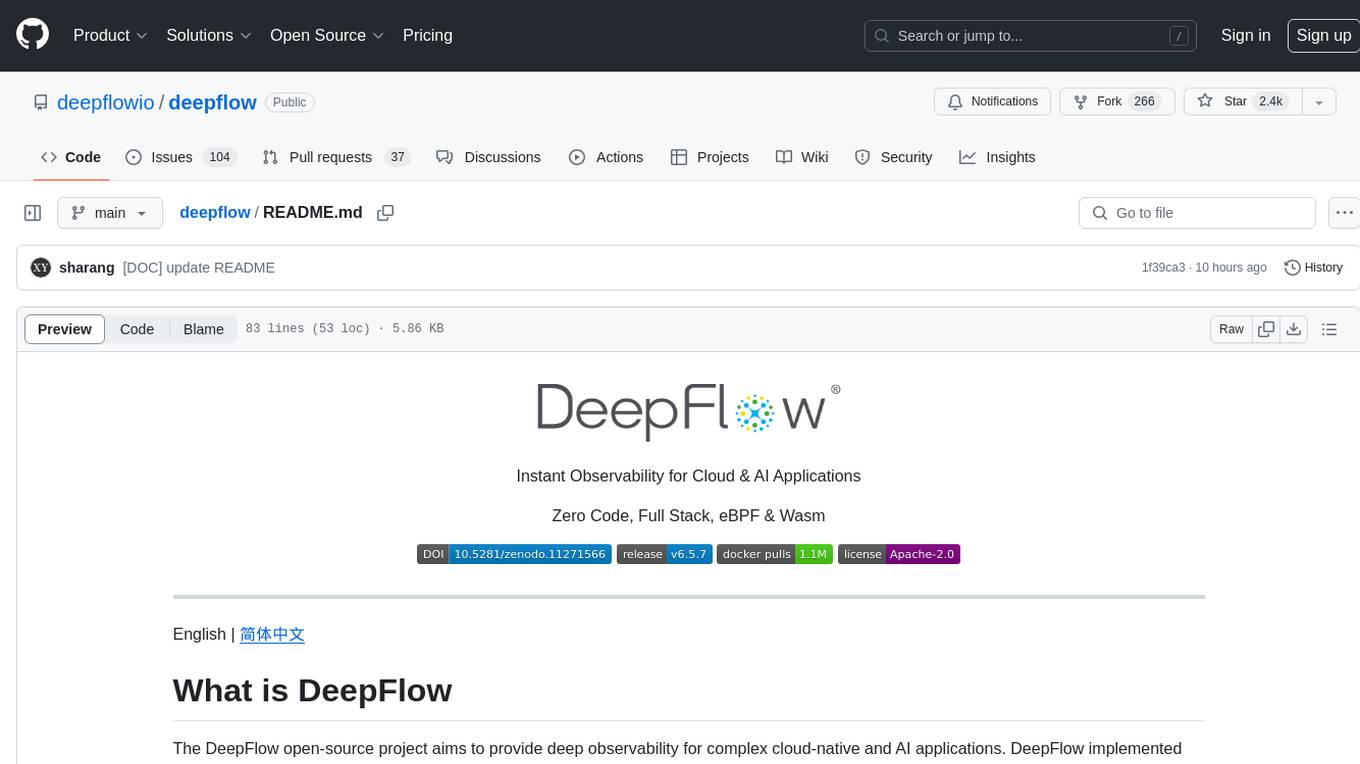
deepflow
DeepFlow is an open-source project that provides deep observability for complex cloud-native and AI applications. It offers Zero Code data collection with eBPF for metrics, distributed tracing, request logs, and function profiling. DeepFlow is integrated with SmartEncoding to achieve Full Stack correlation and efficient access to all observability data. With DeepFlow, cloud-native and AI applications automatically gain deep observability, removing the burden of developers continually instrumenting code and providing monitoring and diagnostic capabilities covering everything from code to infrastructure for DevOps/SRE teams.
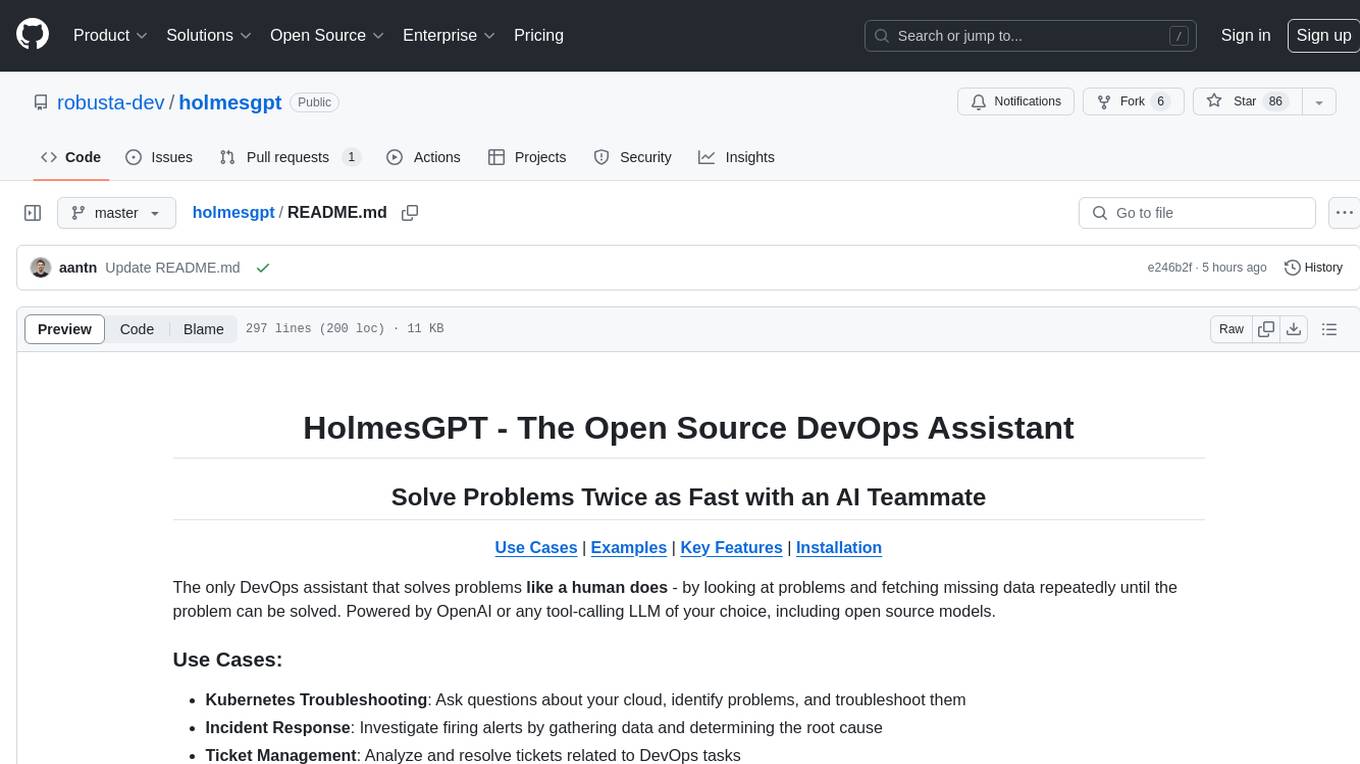
holmesgpt
HolmesGPT is an open-source DevOps assistant powered by OpenAI or any tool-calling LLM of your choice. It helps in troubleshooting Kubernetes, incident response, ticket management, automated investigation, and runbook automation in plain English. The tool connects to existing observability data, is compliance-friendly, provides transparent results, supports extensible data sources, runbook automation, and integrates with existing workflows. Users can install HolmesGPT using Brew, prebuilt Docker container, Python Poetry, or Docker. The tool requires an API key for functioning and supports OpenAI, Azure AI, and self-hosted LLMs.
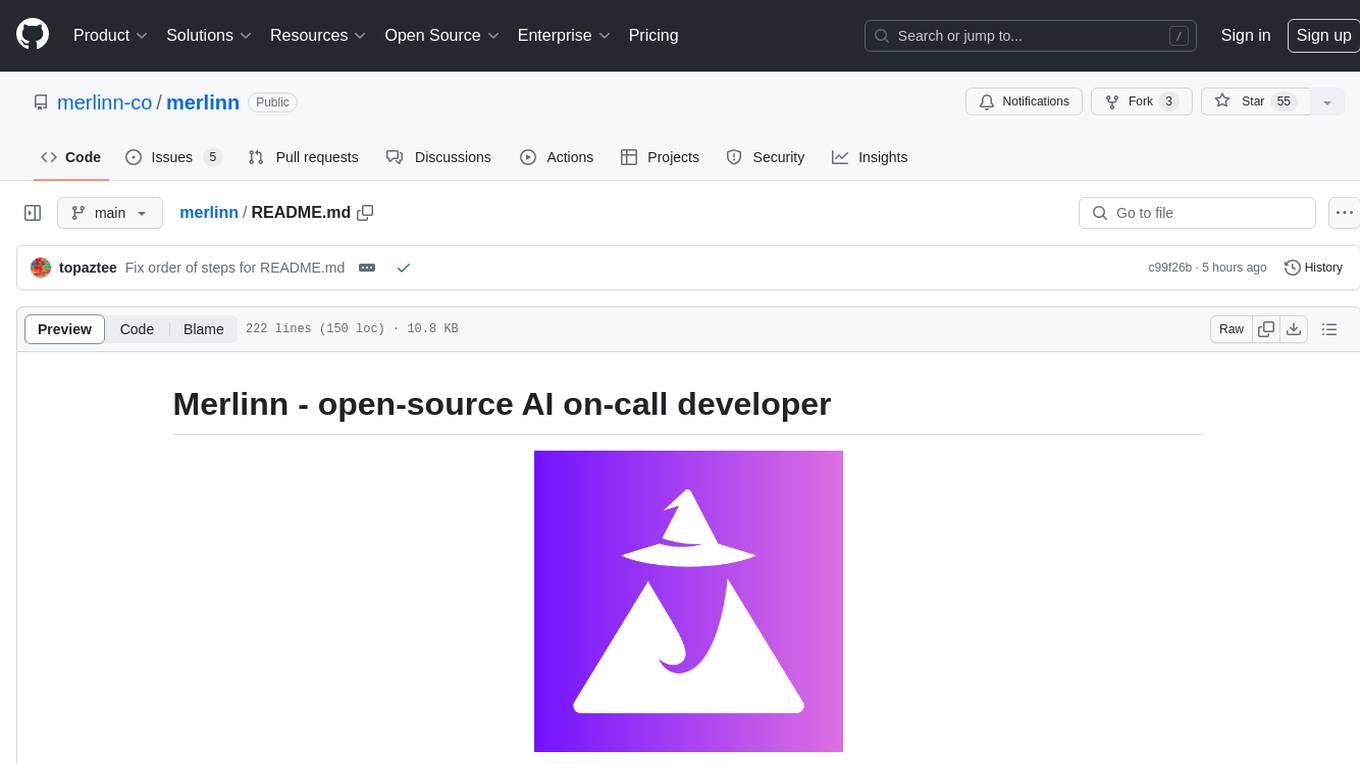
merlinn
Merlinn is an open-source AI-powered on-call engineer that automatically jumps into incidents & alerts, providing useful insights and RCA in real time. It integrates with popular observability tools, lives inside Slack, offers an intuitive UX, and prioritizes security. Users can self-host Merlinn, use it for free, and benefit from automatic RCA, Slack integration, integrations with various tools, intuitive UX, and security features.
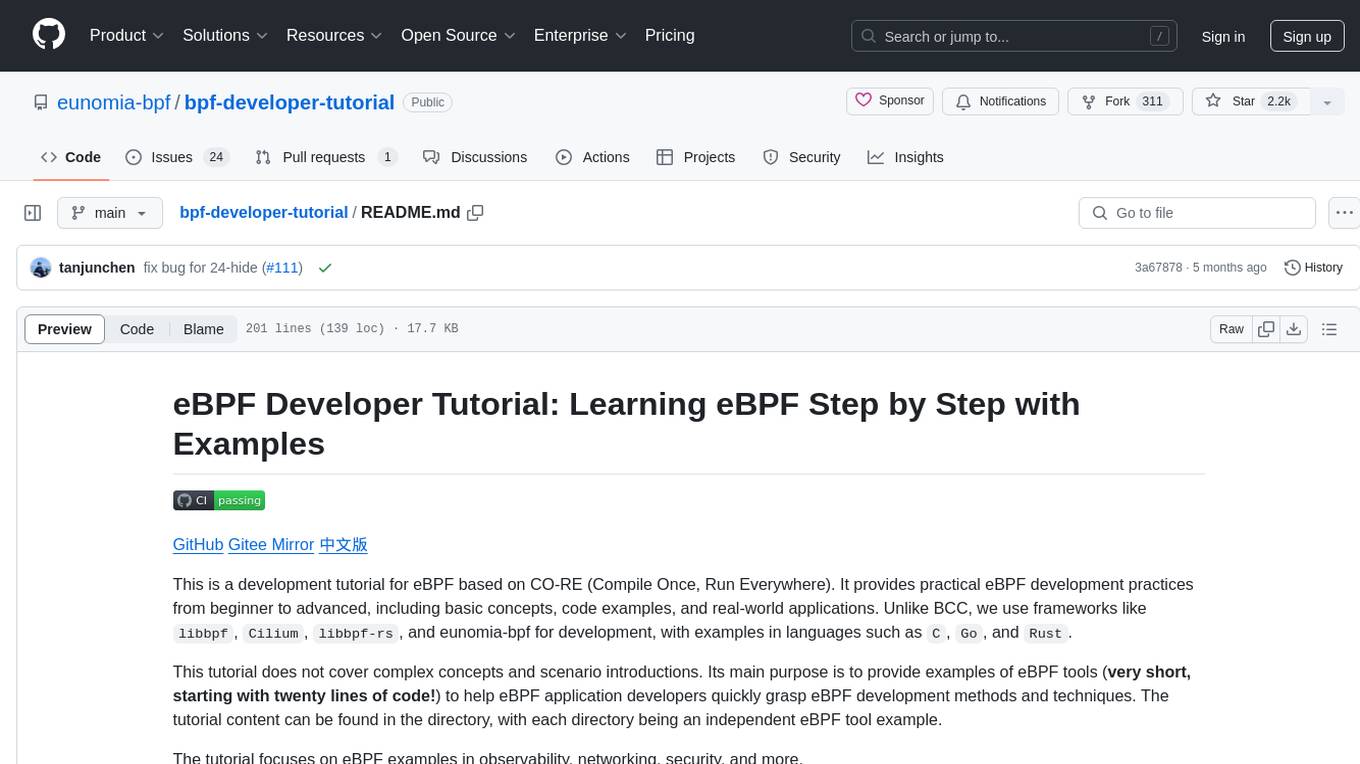
bpf-developer-tutorial
This is a development tutorial for eBPF based on CO-RE (Compile Once, Run Everywhere). It provides practical eBPF development practices from beginner to advanced, including basic concepts, code examples, and real-world applications. The tutorial focuses on eBPF examples in observability, networking, security, and more. It aims to help eBPF application developers quickly grasp eBPF development methods and techniques through examples in languages such as C, Go, and Rust. The tutorial is structured with independent eBPF tool examples in each directory, covering topics like kprobes, fentry, opensnoop, uprobe, sigsnoop, execsnoop, exitsnoop, runqlat, hardirqs, and more. The project is based on libbpf and frameworks like libbpf, Cilium, libbpf-rs, and eunomia-bpf for development.
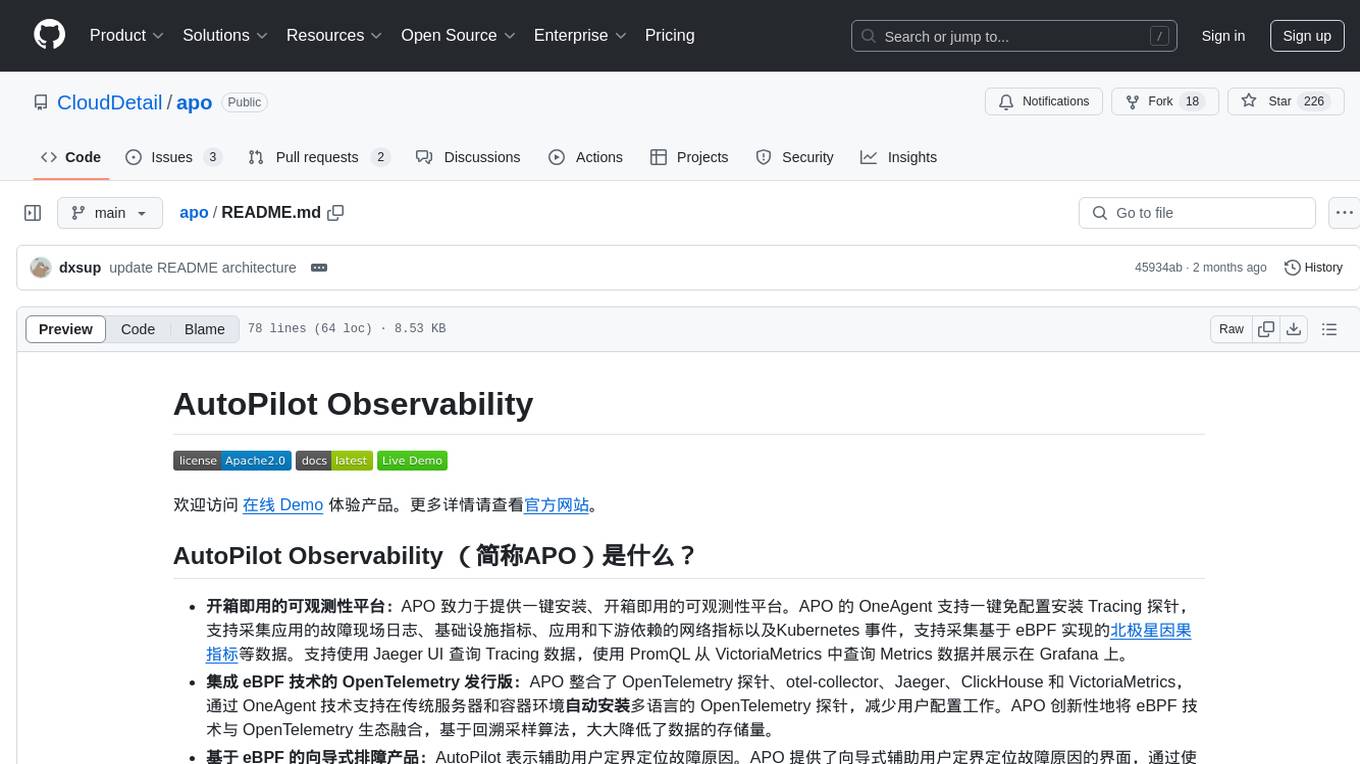
apo
AutoPilot Observability (APO) is an out-of-the-box observability platform that provides one-click installation and ready-to-use capabilities. APO's OneAgent supports one-click configuration-free installation of Tracing probes, collects application fault scene logs, infrastructure metrics, network metrics of applications and downstream dependencies, and Kubernetes events. It supports collecting causality metrics based on eBPF implementation. APO integrates OpenTelemetry probes, otel-collector, Jaeger, ClickHouse, and VictoriaMetrics, reducing user configuration work. APO innovatively integrates eBPF technology with the OpenTelemetry ecosystem, significantly reducing data storage volume. It offers guided troubleshooting using eBPF technology to assist users in pinpointing fault causes on a single page.
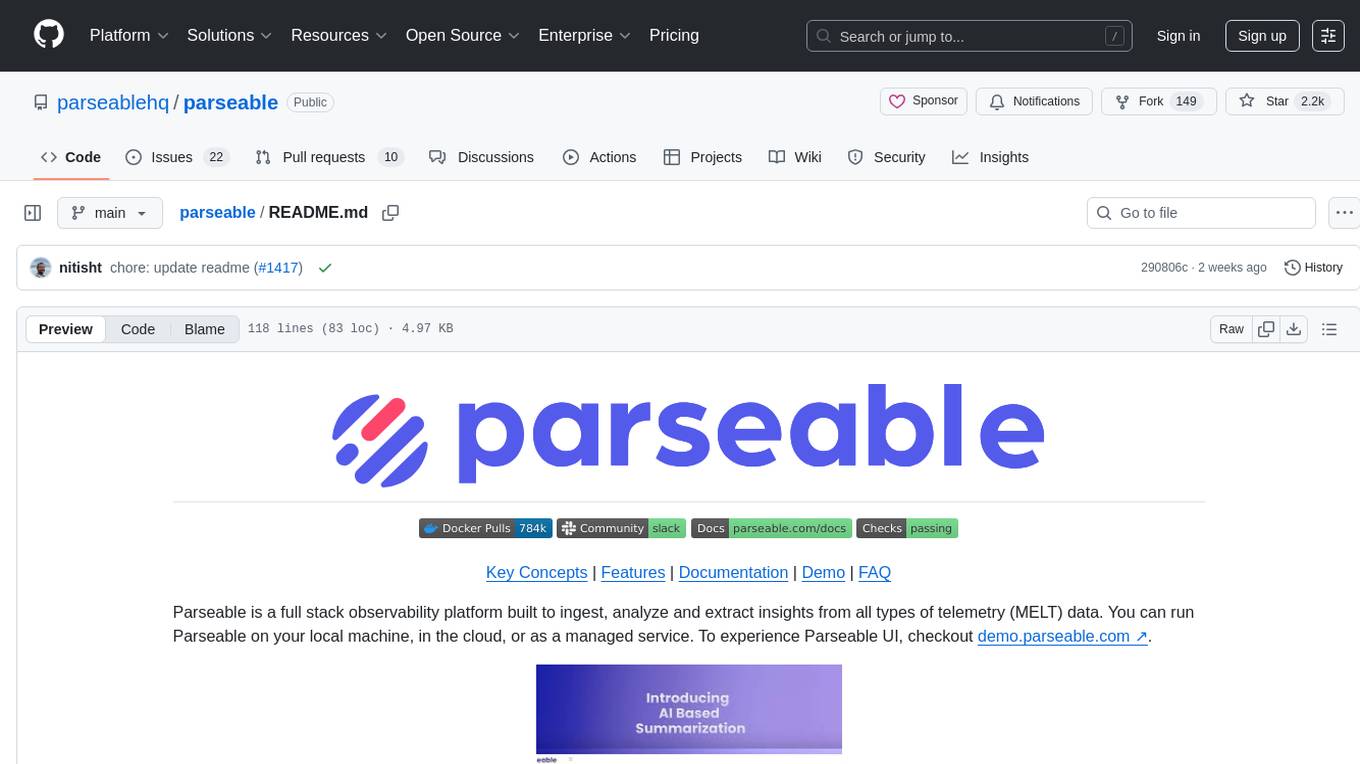
parseable
Parseable is a full stack observability platform designed to ingest, analyze, and extract insights from various types of telemetry data. It can be run locally, in the cloud, or as a managed service. The platform offers features like high availability, smart cache, alerts, role-based access control, OAuth2 support, and OpenTelemetry integration. Users can easily ingest data, query logs, and access the dashboard to monitor and analyze data. Parseable provides a seamless experience for observability and monitoring tasks.
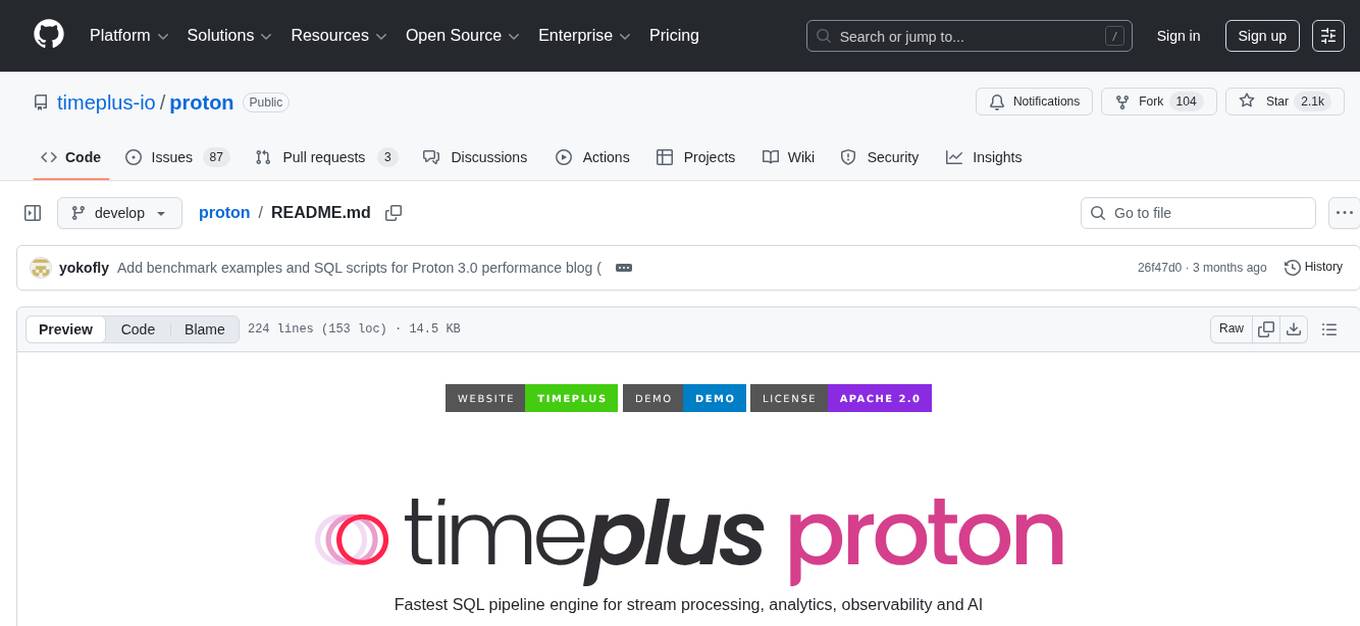
proton
Proton is the fastest SQL pipeline engine in a single C++ binary, designed for stream processing, analytics, observability, and AI. It provides a simple, fast, and efficient alternative to ksqlDB and Apache Flink, powered by ClickHouse engine. Proton offers native source/sink support for various databases, streaming ingestion, multi-stream JOINs, incremental materialized views, alerting, tasks, and UDF in Python/JS. It is lightweight, with no JVM or dependencies, and offers high performance through SIMD optimization. Proton is ideal for real-time analytics ETL/pipeline, telemetry pipeline and alerting, real-time feature pipeline for AI/ML, and more.
3 - OpenAI Gpts
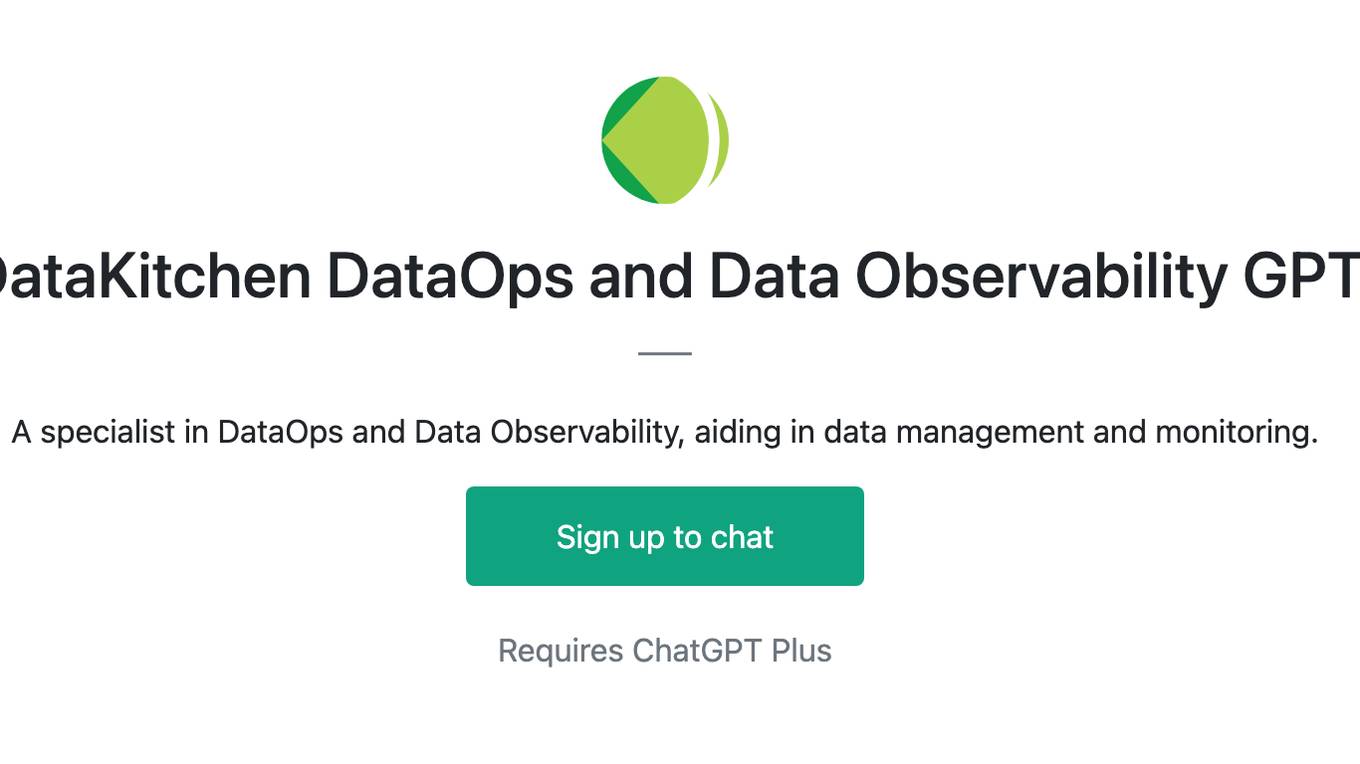
DataKitchen DataOps and Data Observability GPT
A specialist in DataOps and Data Observability, aiding in data management and monitoring.
